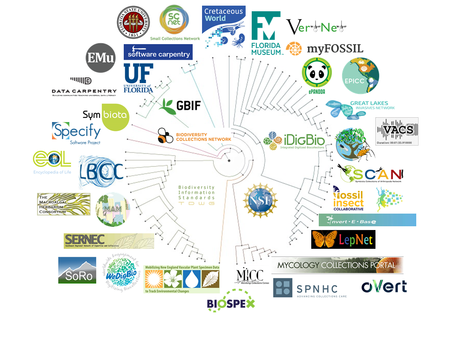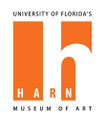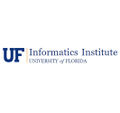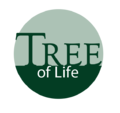ADBC Summit 2017: Difference between revisions
| Line 354: | Line 354: | ||
Oregon Flora Project – focus on regional management & conservation (Ben Brandt with Linda Hardison virtual) | Oregon Flora Project – focus on regional management & conservation (Ben Brandt with Linda Hardison virtual) | ||
Documenting the Ethnobiology of Mexico and Central America (DEMCA) (Jonathan or Ben Brandt) | Documenting the Ethnobiology of Mexico and Central America (DEMCA) (Jonathan or Ben Brandt) | ||
SeedTrack – From seed to seed: tracking seed types in restoration treatments (Neil Cobb) <br> | SeedTrack – From seed to seed: tracking seed types in restoration treatments (Neil Cobb) Education&Outreach (Anne Basham) <br> | ||
4. Areas in Symbiota that need attention (Neil Cobb & Ben Brandt) | 4. Areas in Symbiota that need attention (Neil Cobb & Ben Brandt) | ||
Data entry form, Data search fields | Data entry form, Data search fields | ||
Revision as of 13:00, 15 October 2017
| Digitizing the Past and Present for the Future | |
|---|---|
| ADBC Summit VII Quick Links | |
| Calendar Announcement | |
| PDF Program | |
| Online Agenda | |
Join the leading researchers and professionals striving to digitize our nation's Natural History Collections! The annual ADBC Summit brings together representatives from TCNs, PENs, NSF, iDigBio, and other initiatives related to the U.S. National Science Foundation’s Advancing Digitization of Biodiversity Collections (ADBC) program. The Summit inspires collaboration and focuses discussions on shared goals, challenges, and opportunities.
General Information
- When: November 2-3, 2017
- Where: Gainesville, Florida
- Venue: University of Florida Cultural Plaza
Maps & Dining Information
Note: There is a restaurant in the Hilton. On maps, it is listed as "Albert's." It is now a "Shula's Steakhouse."
Area Information
Ground Transportation Options
- Hilton Courtesy Shuttle
- Gainesville Regional Transit System: Gator Locator; Campus Routes; City Routes
- Parking at the UF Cultural Plaza
- Lyft
- Uber
- Bike Share for Gainesville
Wireless Service
Wireless access for onsite iDigBio participants is provided by the University of Florida. Refer to iDigBio's Wireless Network Service wiki page for more information on how to connect.
Remote Access
To the extent possible, the Summit sessions will be broadcast and recorded using Adobe Connect. If you wish to listen to the meeting remotely:
- First, read the iDigBio Web Conferencing Wiki Page to get you started.
- Connect to the meeting:
- Navigate to: https://idigbio.adobeconnect.com/summit7
- Choose Enter as Guest.
- Type your First and Last Name and affiliation in the box provided.
- Click Enter Room.
Summit Program
We are in the process of preparing an interactive PDF program for the Summit. Check back here for a download link as the meeting gets closer. Note that we also plan to print a one-page, double-sided reference agenda for distribution at the Summit.
Agenda
Monday, October 30, 2017 thru Tuesday, October 31, 2017 -- Data Carpentry
| Time | Location/Information |
|---|---|
| 9:00-4:30 | Data Carpentry Workshop
The UF Carpentries Club and iDigBio are offering a two day Data Carpentry Workshop to help participants in the 2017 ADBC Summit and the UF community get started learning R and common data management tools such as the spreadsheets, OpenRefine, and SQL. Need to learn some programming for a class? Have data you're scared to work with in Excel? Want to collaborate effectively with your peers? We were there once too. Come start learning with us! Visit the workshop website to learn more: https://idigbio.github.io/2017-10-30-iDigBio-Summit-UFII/ |
Wednesday, November 1, 2017 -- Florida Museum Collections Tours
| Time | Location/Information |
|---|---|
| TBD |
|
Wednesday, November 1, 2017 -- Pre-Summit Meetings
| Time | Harn Galleria | Harn Chandler Auditorium | Harn Classroom 1 | Harn Classroom 2 | Powell Classroom | McGuire Classroom | McGuire Director's Conference Room | |
|---|---|---|---|---|---|---|---|---|
| Morning | Breakfast on your own | |||||||
| 10:00-10:30 | Unavailable | Unavailable | Unavailable | Unavailable | Unavailable | Setup | Open meeting space | |
| 10:30-12:00 | Unavailable | Unavailable | Unavailable | Unavailable | Unavailable | Orientation - Welcome to ADBC Join us for an iDigBio and ADBC orientation session where we will present information-fit-for-use about the following:
Everyone is welcome! Come to learn, to refresh, to meet your fellow digitizers! |
Open meeting space | |
| 12:00-1:00 | Lunch on your own | |||||||
| 12:30-1:00 | Unavailable | Unavailable | Unavailable | Unavailable | Setup | Setup | Setup | |
| 1:00-4:30 | Unavailable | Unavailable | Unavailable | Unavailable | Open meeting space | oVert TCN Kickoff Meeting | IDigBio External Advisory Board (closed session) | |
| 4:30-5:00 | Unavailable | Unavailable | Unavailable | Unavailable | Cleanup | Cleanup | Cleanup | |
| Evening | Dinner on your own | |||||||
| 6:30-9:30 | Informal welcome and meet & greet with iDigBio staff in the No Name Lounge inside the Hilton | |||||||
Thursday, November 2, 2017 -- Summit Day 1
| Time | Harn Galleria | Harn Chandler Auditorium | Harn Classroom 1 | Harn Classroom 2 | Powell Classroom | McGuire Classroom | McGuire Director's Conference Room | ||||||||||
|---|---|---|---|---|---|---|---|---|---|---|---|---|---|---|---|---|---|
| Morning | Breakfast on your own | ||||||||||||||||
| 8:00-9:00 | Setup | Setup | Unavailable | Unavailable | Unavailable | EAB meeting with the TCN community (Neil Cobb) | Open meeting space | ||||||||||
| 9:00-9:30 | Arrival, Summit check-in, coffee, networking | Networking, getting settled | Unavailable | Unavailable | Unavailable | Open meeting space | |||||||||||
| 9:30-10:40 | Unavailable |
|
Unavailable | Unavailable | Unavailable | Open meeting space | |||||||||||
| 10:35-10:55 | Morning break | Unavailable | Unavailable | Unavailable | |||||||||||||
| 10:55-12:10 | Unavailable |
|
Unavailable | Unavailable | Unavailable | Open meeting space | |||||||||||
| 12:10-1:15 | Unavailable | Box lunch provided | Setup | Open meeting space | |||||||||||||
| 1:15-2:30 | Unavailable | Group Discussion: Data Integration, attribution and interoperability (Andy Bentley, Robert Gropp) Collections, aggregators, data re-packagers, publishers, researchers, and external user groups form a complex web of data connections and pipelines. This forms the natural history infrastructure essential for collections use by an ever increasing and diverse external user community. We have made great strides in developing the individual actors within this system and we are now well poised to utilize these capabilities to address big picture questions. We need to continue work on the individual aspects, but the focus now needs to be on integration of the functionality provided by the actors involved in the pipeline to facilitate the transfer of data between them with as few human interventions as possible. In order for the system to function efficiently and to the benefit of all parties, information, data, and resources need not only to be integrated efficiently but flow in the reverse direction (attribution) to facilitate collections advocacy and sustainability. For instance, there are benefits to collections from inclusion into aggregators and subsequent use by researchers and publishers that are not being realized. The Biodiversity Collections Network (BCoN) is planning a program of workshops in conjunction with other groups to perform a needs assessment to identify gaps and problems in the data pipeline and explore future steps in coordinating efforts, providing solutions and standardizing tools and methods. This talk will explore this landscape and highlight BCoN’s efforts in this regard while soliciting participation from actors in the pipeline and the community at large. |
Open meeting space | ||||||||||||||
| 2:30-3:00 | Unavailable | Afternoon break | Open meeting space | ||||||||||||||
| 3:00-4:15 | Unavailable | Meeting of the Symbiota Working Group (Neil Cobb, Andy Miller) 1. The role of Symbiota in the ecosystem of biodiversity informatics platforms (Neil Cobb) 2. Symbiota Tools & Restructuring:
Genetic Linking and new GenBank Sequence Submission Tool (Andy Miller)
NfN loader (Herrick Brown & Michael Denslow)
CoGe plugin (Herrick Brown and Michael Denslow)
iPlant Image Processor (Herrick Brown and Michael Denslow)
Skeletal Data Entry (Herrick Brown and Michael Denslow)
Symbiota2 – (Ben Brandt)
Spatial Module (Ben Brandt) Phenology Tracker (Will Pearse and Ben Brandt)
Phylogenetics Module (Will Pearse and Ben Brandt) |
WeDigBio Planning Meeting (Austin Mast) After a brief introduction to the annual Worldwide Engagement for Digitizing Biocollections (WeDigBio) event, participants will brainstorm new innovations for WeDigBio 2018, including the development of a virtual science festival (e.g., on the Sococo platform) and virtual reality collections tours and field experiences. |
Legal Issues with Collections (Linda Ford) As biodiversity collections are increasingly available online, they will be under increasing scrutiny. The Nagoya Protocol – a supplementary agreement to the Convention on Biological Diversity – has important implications for the conduct of U.S. biological collections, especially those whose data are available digitally. Knowledge of the protocol is not widespread among researchers or institutions. This session will discuss legal concerns associated with digitized collections and mitigating these issues using digital means. Compliance with the Nagoya Protocol will be a test case to evaluate how institutions must respond to requirements for increased transparency and digital tracking. |
Open meeting space | Meeting of the iDigBio student group (Adania Flemming) | Open meeting space | ||||||||||
| 4:15-4:30 | Unavailable | Transition to Auditorium for wrap-up | Cleanup | Cleanup | Cleanup | Cleanup | Cleanup | ||||||||||
| 4:30-5:00 | Unavailable | Day 1 Wrap-up | Unavailable | Unavailable | Unavailable | Unavailable | Unavailable | ||||||||||
| 6:30-9:30 | Evening program at the Florida Museum of Natural History (Powell Hall)
| ||||||||||||||||
Friday, November 3, 2017 -- Summit Day 2
| Time | Harn Galleria | Harn Chandler Auditorium | Harn Classroom 1 | Harn Classroom 2 | Powell Classroom | McGuire Classroom | McGuire Director's Conference Room | |||||||||
|---|---|---|---|---|---|---|---|---|---|---|---|---|---|---|---|---|
| Morning | Breakfast on your own | |||||||||||||||
| 8:00-9:00 | Setup | Setup | Unavailable | Unavailable | Setup | Setup | Open meeting space | |||||||||
| 9:00-9:30 | Arrival, Summit check-in, coffee, networking | Unavailable | Unavailable | Open meeting space | ||||||||||||
| 9:30-10:10 | Unavailable | DemoCamp (Matt Collins, Alex Thompson) | Unavailable | Unavailable | ICER Working Group workshop on collections data in ecological and conservation research (Deborah Paul, Anna Monfils) The ICER Working Group (Integrating Collections and Ecological Research), along with BCoN, will present a half-day workshop centered around ecologists who incorporate collections data in their scientific research and sharing a potential model program for integrating collections data in conservation efforts. Speakers invited will give talks representing community examples of museum specimen data integrated with other biodiversity data to enhance and inform efforts to address key ecological questions and support conservation efforts. |
Changes/Improvements to the iDigBio Portal (Joanna McCaffrey, Shari Ellis) | Open meeting space | |||||||||
| 10:10-10:25 | Morning break | Unavailable | Unavailable | Open meeting space | ||||||||||||
| 10:25-12:30 | Unavailable | DemoCamp (continued) | Unavailable | Unavailable | ICER Working Group workshop (continued) | iDigPaleo meeting iDigPaleo (Talia Karim) This session will focus on current and future developments for iDigPaleo and how you can utilize the portal for your education and outreach needs. iDigPaleo was build as a proof of concept E&O portal for the Fossil Insect Collaborative. It currently hosts data for the FIC-TCN and the CW-TCN, with several other projects to be added this fall. Bring your ideas for the future of this portal (including any ideas you might have for a new name!). |
Open meeting space | |||||||||
| 12:30-1:30 | Unavailable | Box lunch provided | Open meeting space | |||||||||||||
| 1:30-3:15 | Unavailable | Building a Local Carpentries Community (Matt Collins, Deborah Paul) The capacity to manage, manipulate, and analyze data is important to modern research programs. Ensuring research staff and students have access to the education and learning opportunities to maintain their development is the role of PIs, program heads, and institutional directors. Peer teaching and learning communities provide a learner-lead environment that is easy to foster and support in parallel with formal structures like academic curricula and professional development. We will describe our experiences at UF and FSU developing a community centered around the Data and Software Carpentry organizations to advance the informatics capacity of our organizations. |
Broadening Participation & Biodiversity Literacy in Undergraduate Education (BLUE) (Anna Monfils, Molly Phillips) | iDigBio brainstorming session with TCNs iDigBio would like to brainstorm with the TCNs about the IAC meetings, bi-monthly reports, etc. The goal is to make these more effective and beneficial for all. This can also be a forum to brainstorm about other topics related to interaction among iDigBio and the TCNs. |
Specify meeting (Jim Beach) | Open meeting space | Open meeting space | |||||||||
| 3:15-3:30 | Unavailable | Transition to Auditorium for wrap-up | Afternoon break | Cleanup | Cleanup | Cleanup | ||||||||||
| 3:30-4:00 | Unavailable | Summit Wrap-up | Cleanup | Cleanup | Unavailable | Unavailable | Unavailable | |||||||||
| 4:00-5:45 | Natural History Seminar at the Harn Chandler Auditorium in collaboration with the Florida Museum's Department of Natural History, iDigBio, myFOSSIL, and the Paleontological Society
| |||||||||||||||
| 5:45pm-6:00pm | Unavailable | Cleanup | Unavailable | Unavailable | Unavailable | Unavailable | Unavailable | |||||||||
| Evening | Dinner on your own | |||||||||||||||
| TBD | Drink with the Extinct at the Florida Museum (optional activity)
Separate registration and payment is required, but a discount code will be available for Summit participants (contact us for details). Registration for this event opens Monday, September 25. Event details are available on the Florida Museum's website. | |||||||||||||||
Saturday, November 4, 2017 -- Optional Activities & Field Trip
Self-Guided Activities
- National Fossil Day™ at the Florida Museum: https://www.floridamuseum.ufl.edu/event/fossil-day/
- 100th Anniversary Exhibit at the Florida Museum: https://www.floridamuseum.ufl.edu/100years/
- Tree of Life Exhibit at the Harn Museum of Art: http://www.harn.ufl.edu/treeoflife
- Natural Area Teaching Laboratory: http://natl.ifas.ufl.edu/
- Hike around Lake Alice (including Bat House): http://soils.ifas.ufl.edu/campuswaterquality/water/lake-alice.shtml
Guided Field Trip
Sweetwater Wetlands Preserve
- Information: http://www.sweetwaterwetlands.org/
- Registration: Contact Cathy Bester
- Fee: None
- Where to meet: HiltonLobby
- When: 8 AM pickup; 11 AM dropoff







